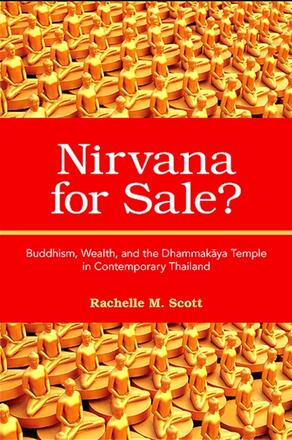
Nirvana for Sale?
Buddhism, Wealth, and the Dhammakāya Temple in Contemporary Thailand
Alternative formats available from:
Explores the relationship between material prosperity and spirituality in contemporary Thai Buddhism.
Description
What is the proper relationship between religion and prosperity? Rachelle M. Scott looks at this issue in a Thai Buddhist context, asking when the relationship between Buddhist piety and wealth is viewed in favorable terms and when it is viewed in terms of conflict and tension. Scott focuses on the Dhammakāya Temple, an organization that has placed traditional Theravāda practices, such as meditation and merit-making, within a modernist framework that encourages personal and social prosperity. The Temple's construction of a massive religious monument in the late 1990s embodied this message, but also sparked criticism of the Temple's wealth and fund-raising techniques and engendered debates over authentic Buddhism and religious authority. Scott situates this controversy within the context of postmodern Thailand and the Asian economic crisis when reevaluations of wealth, global capitalism, and "Asian values" occupied a preeminent place in Thai public discourse.
Rachelle M. Scott is Assistant Professor of Religious Studies at the University of Tennessee.
Reviews
"...impressive … Featuring clear, accessible prose and an admirable attention to detail throughout, this is an excellent book." — Journal of Buddhist Ethics
"There are many laudable qualities of Scott's work … this book is clear, well organized, and accessible to both students and scholars … Scott has made a great contribution to the study of prosperity religions, as well as the fields of Thai studies and Buddhist studies." — H-Net Reviews